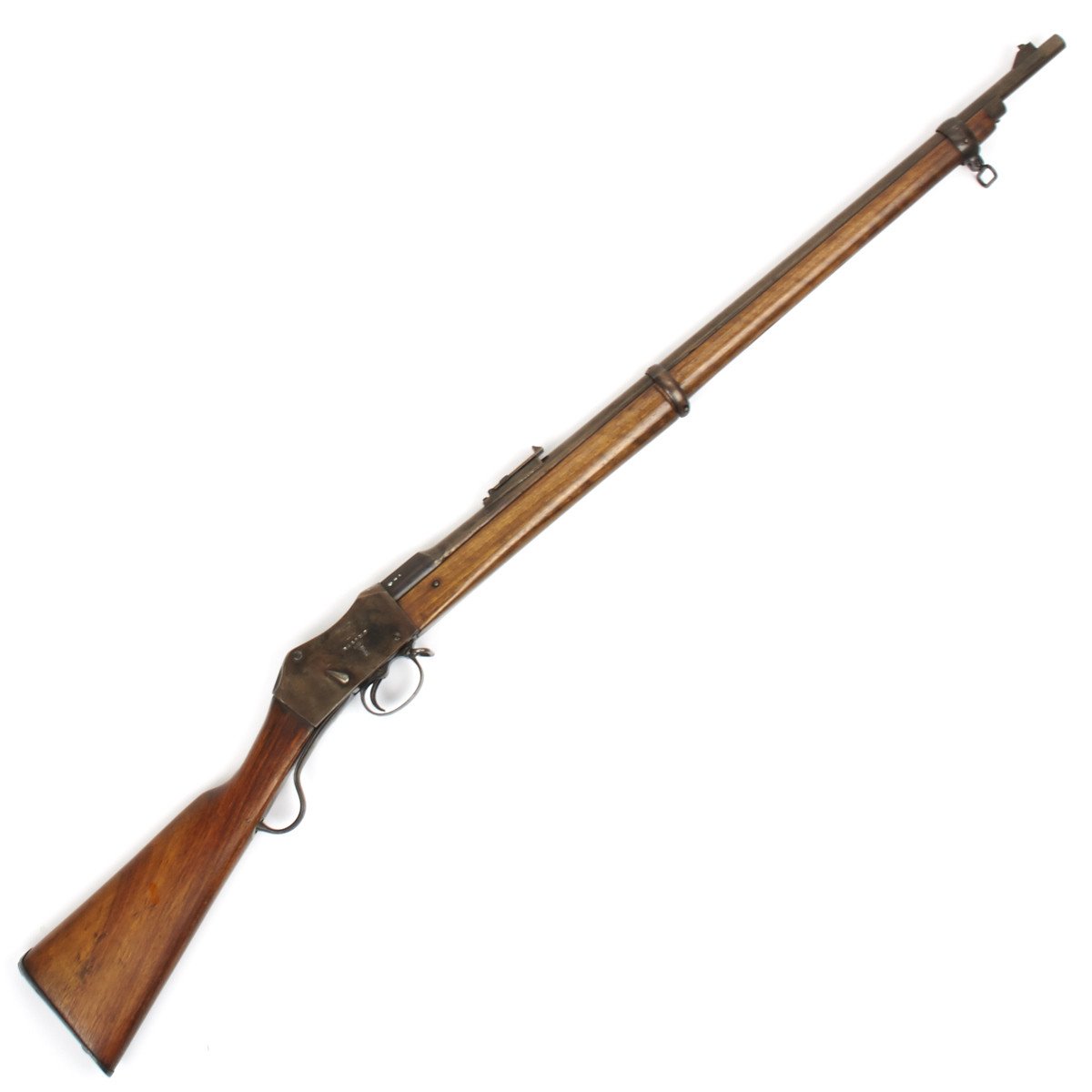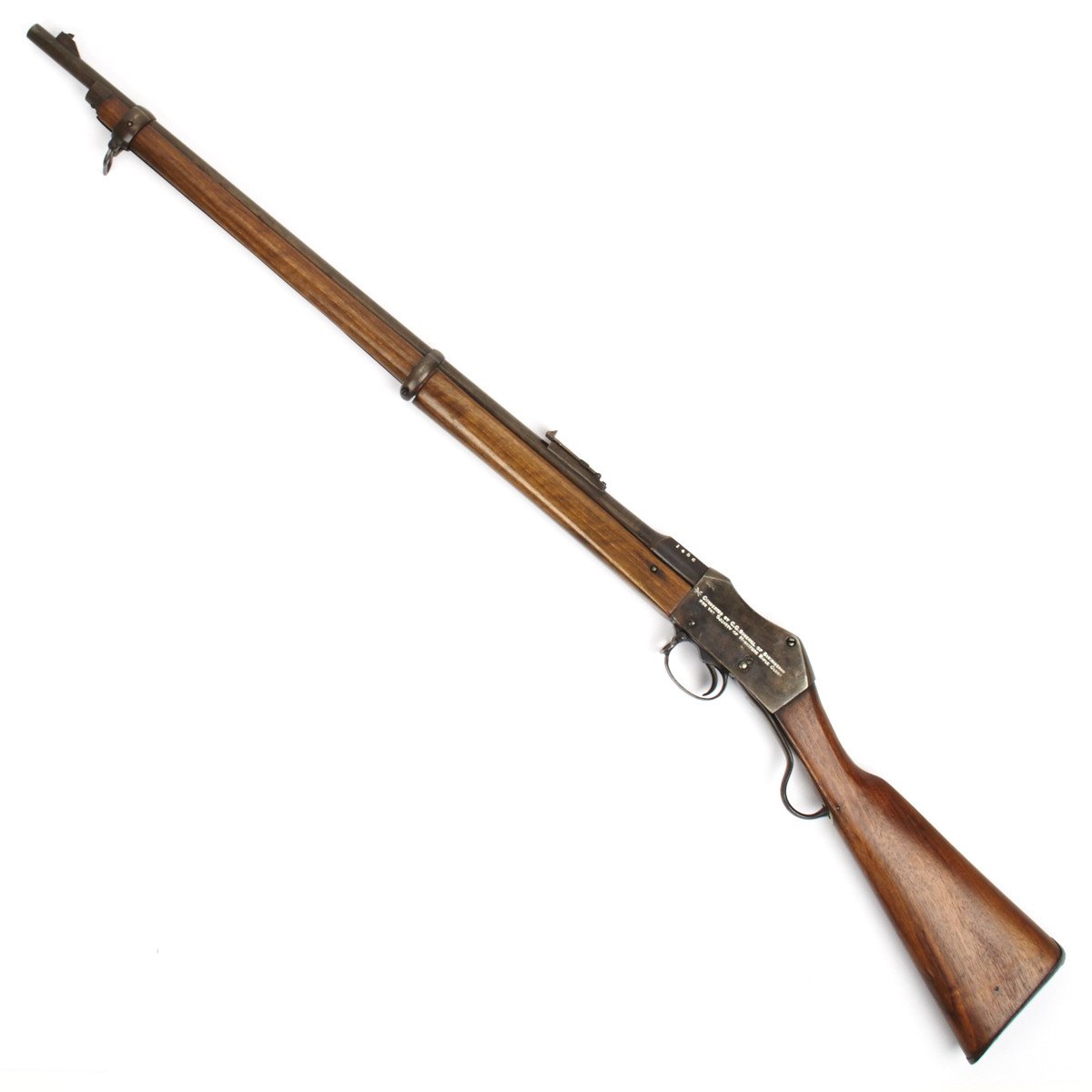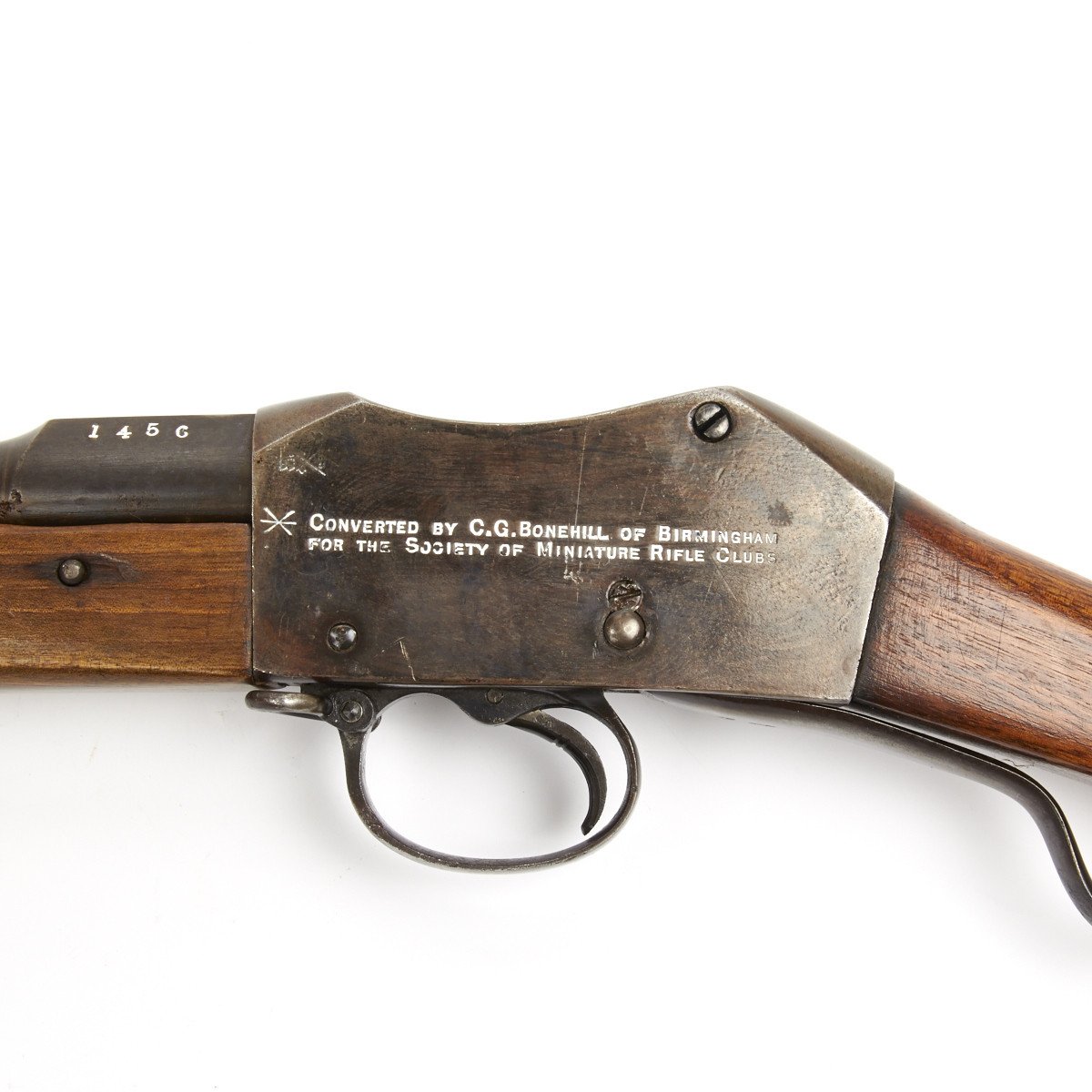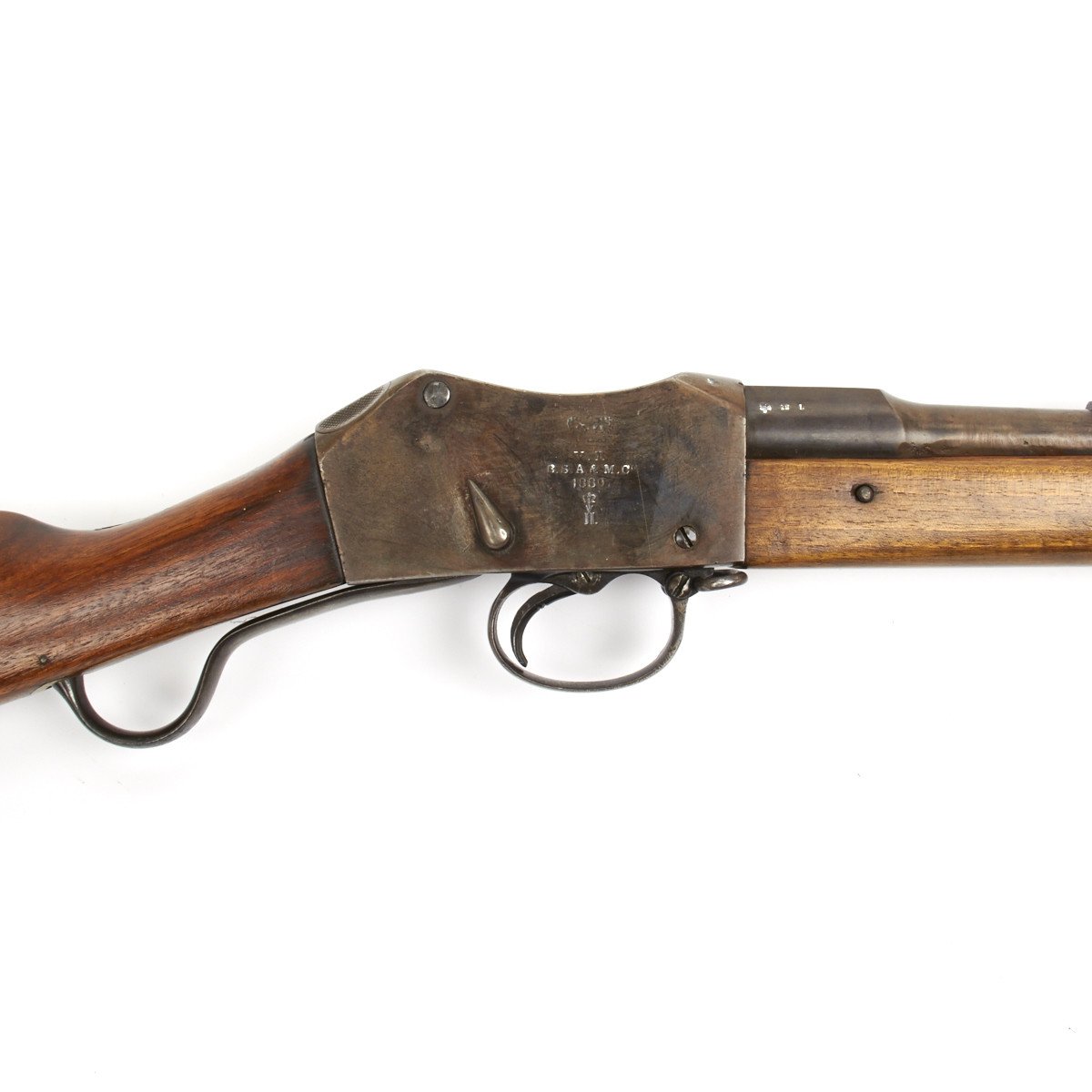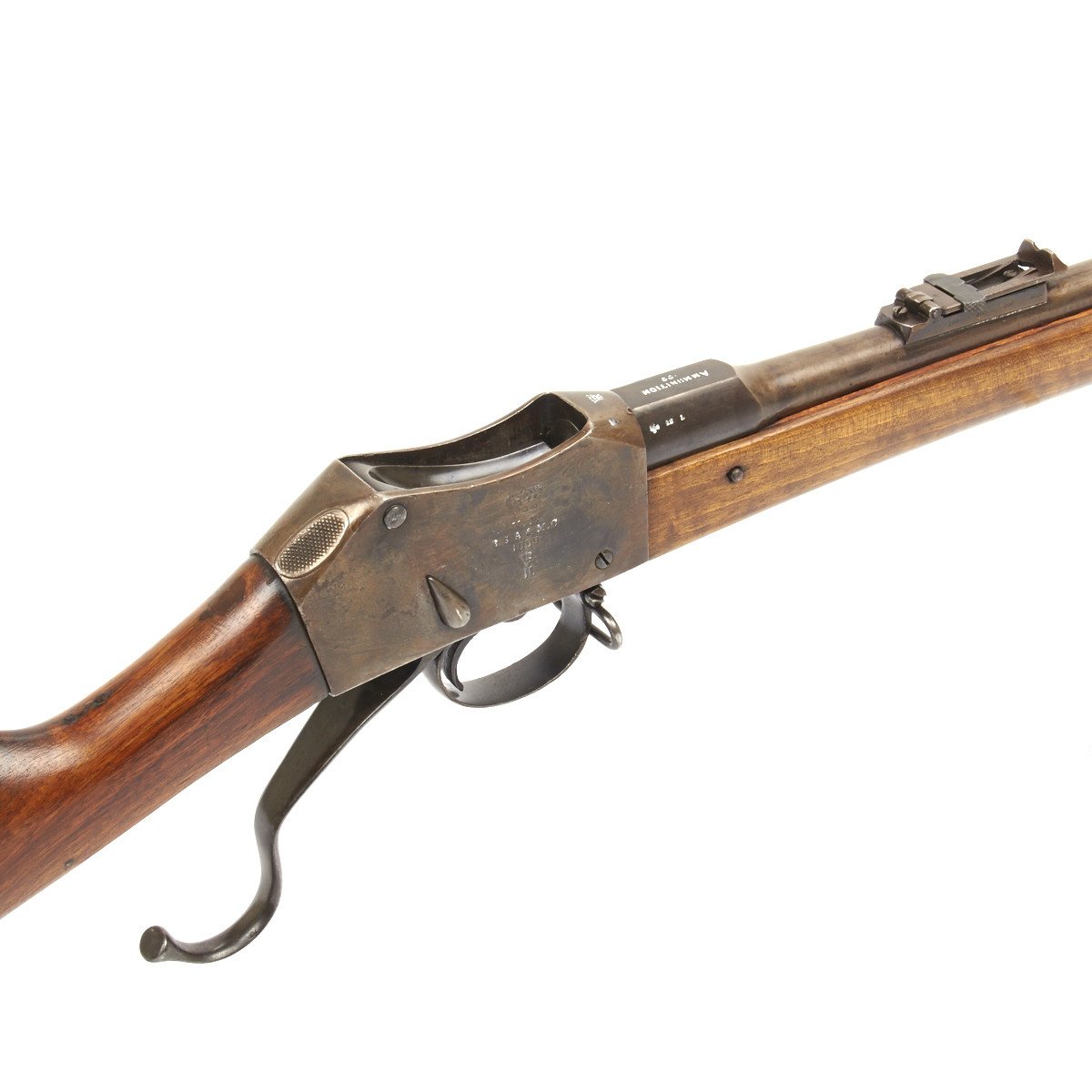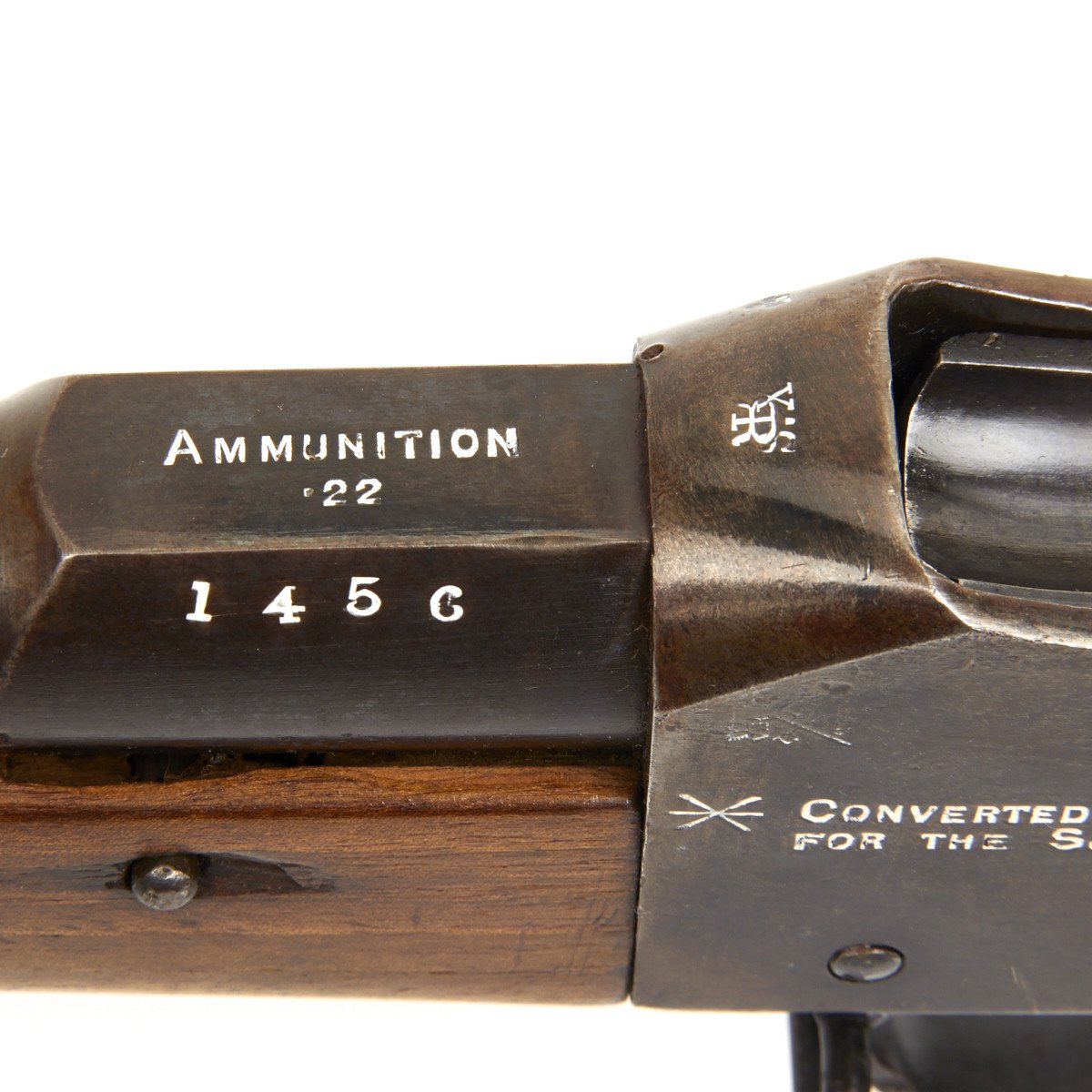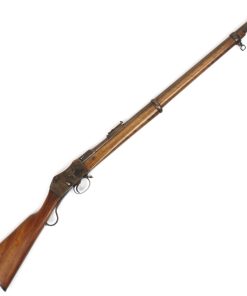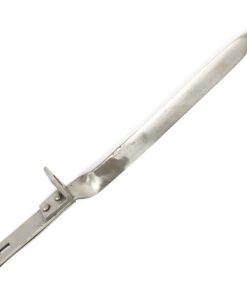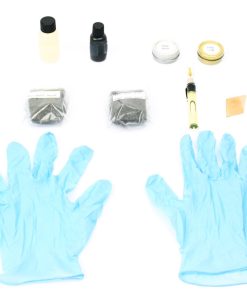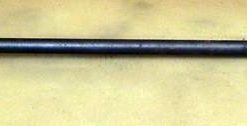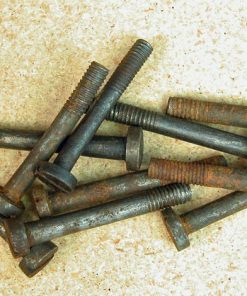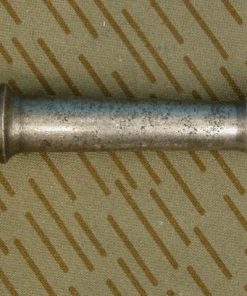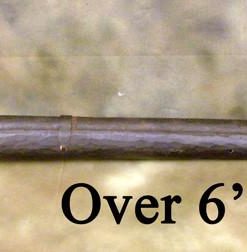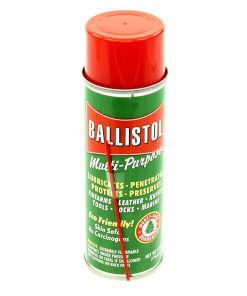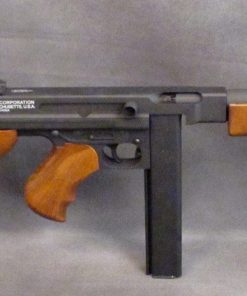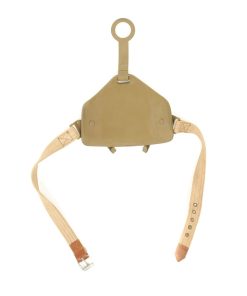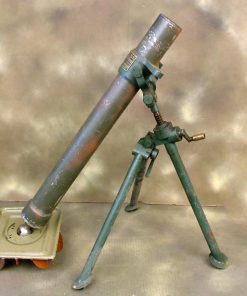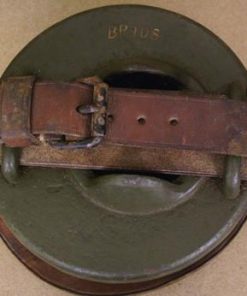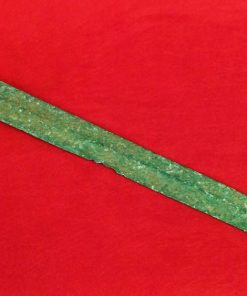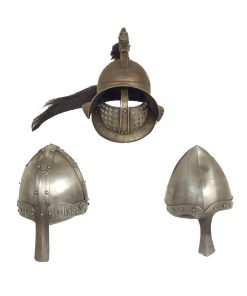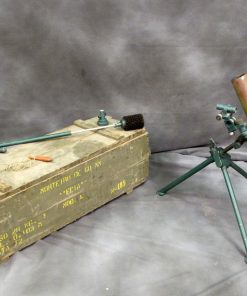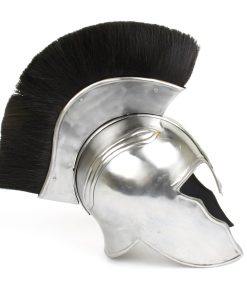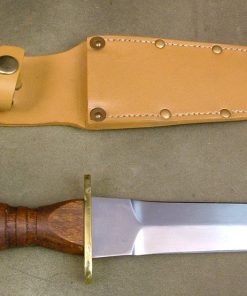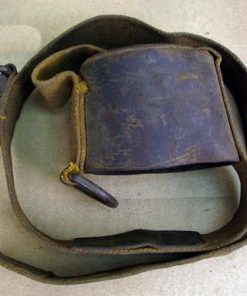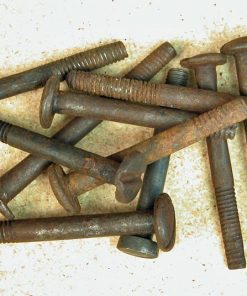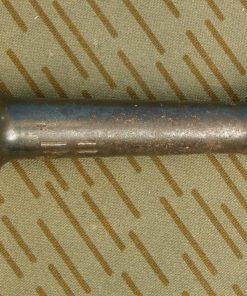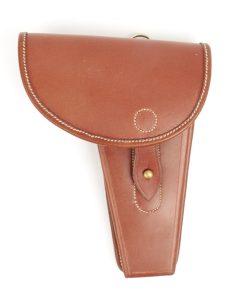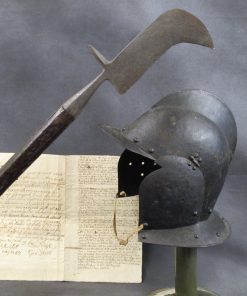Original British P-1871 MkII Martini-Henry Rifle Converted .22 Caliber Original Items
$ 1.495,00 $ 373,75
Original Item: Only One Available. At the end of the 19th Century the British Armys former service rifle, the Martini-Henry, was being replaced by the magazine-fed, bolt-action Lee-Metford Rifle. While a significant number of the old Martini-Henry Rifles were rebarreled to fire the new .303 round, becoming Martini-Metford or Martini-Enfield rifles, a large number were used for military training and sold off for conversion for civilian competition shooters.
The late 1860s had seen the rise of rifle clubs and the formation of the British National Rifle Association following several invasion scares that had also led to the rise of new volunteer rifle units. By 1900, miniature target rifle clubs had become popular across the country and were widely encouraged in the wake of the Boer War when the basic marksmanship of new recruits to the British Army was found lacking. Both Rudyard Kipling and Arthur Conan Doyle both experienced firsthand the effect of accurate Boer rifle fire during the Second Boer War and on their return became staunch advocates of miniature rifle clubs with both men forming their own. The industrialization of the 19th century an increasing number of British men of service age who lived and worked in Britains industrial towns and cities had no experience of shooting or firearms. These rifle clubs provided a convenient way for them to learn to shoot.
The British Government encouraged civilian marksmanship training back then (unlike nowadays, where they’re actively hostile towards private gun ownership), as it made basic military training easier, since the recruit already knew how to shoot. This proved very valuable during the First World War, when England’s troublesome neighbor in Europe (Germany) got out of line. Precious days were shaved off the time it took to train recruits as a result of civilian marksmanship training.
A number of Birmingham gunsmiths including Birmingham Small Arms (BSA), Parker-Hale and W.W. Greener began to convert and later manufacture new Martini-Henry rifles in both .310 and .22LR. The Martini-Henry action dominated for target shooting in Britain for over 45 years with the rifles being used in national and international competitions including Queen Alexandras Cup and the Olympics. Many of the rifles had both the standard service leaf sight mounted on the barrel in front of the receiver while tang sights such as the Vernier became increasingly popular.
This particular example, in really wonderful condition, was originally manufactured as a Mk II by the British Small Arms and Manufacturing Company in .450/.577 caliber in 1889 but was later converted .22 caliber by C.G. Bonehill of Birmingham for military training and civilian marksmanship purposes.
Antique military training martini rifles are hard to find, especially in such great condition and with a truly excellent bore.
Fast Shipping with Professional Packaging
Thanks to our longstanding association with UPS FedEx DHL, and other major international carriers, we are able to provide a range of shipping options. Our warehouse staff is expertly trained and will wrap your products according to our exact and precise specifications. Prior to shipping, your goods will be thoroughly examined and securely secured. We ship to thousands clients each day across multiple countries. This shows how we're dedicated to be the largest retailer on the internet. Warehouses and distribution centres can be located throughout Europe as well as the USA.
Note: Orders with more than one item will be assigned a processing date depending on the item.
Before shipping before shipping, we'll conduct a thorough inspection of the items you have ordered. Today, the majority of orders will be delivered within 48 hours. The delivery time will be between 3-7 days.
Returns
The stock is dynamic and we cannot completely manage it because multiple stakeholders are involved, including our factory and warehouse. So the actual stock may alter at any time. It's possible that you may not receive your order once the order has been made.
Our policy is valid for a period of 30 days. If you don't receive the product within 30 days, we are not able to issue a refund or an exchange.
You can only return an item if it is unused and in the same state as the day you received it. You must have the item in its original packaging.
Related products
Uncategorized
Uncategorized
Uncategorized
Uncategorized
Uncategorized
Uncategorized
Uncategorized
Uncategorized
Angolan Rebel 1970s era 60mm Inert Display Mortar from Angolan Civil War Original Items
Uncategorized
Uncategorized
Uncategorized
Uncategorized
Uncategorized
Uncategorized
Uncategorized
Uncategorized
Uncategorized
Uncategorized
Uncategorized
Uncategorized
Armored Burgonet Helmet & Polearm from Scottish Castle Leith Hall Circa 1700 Original Items
